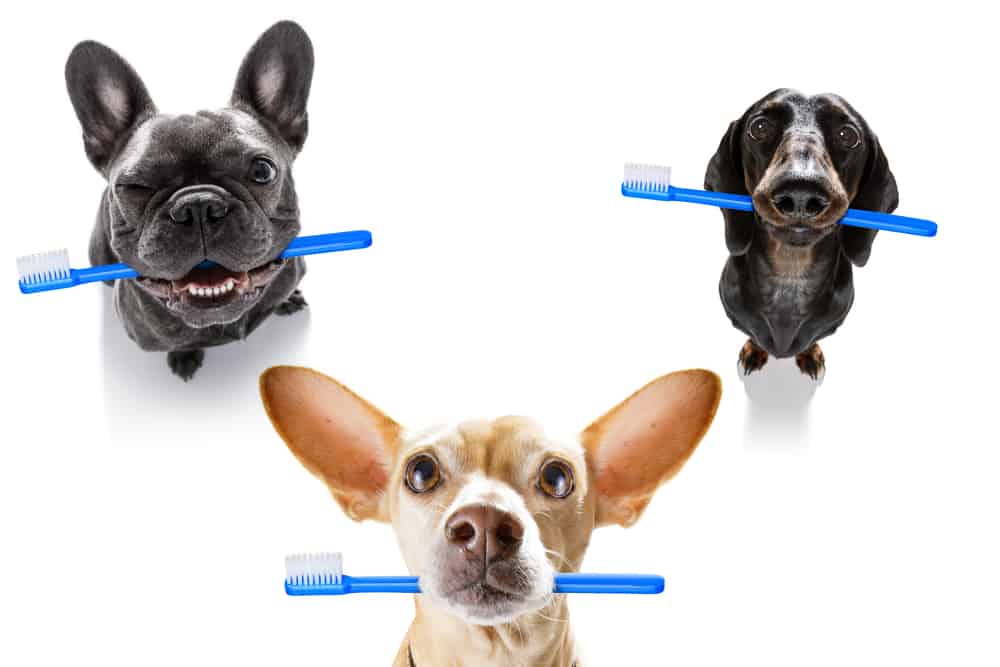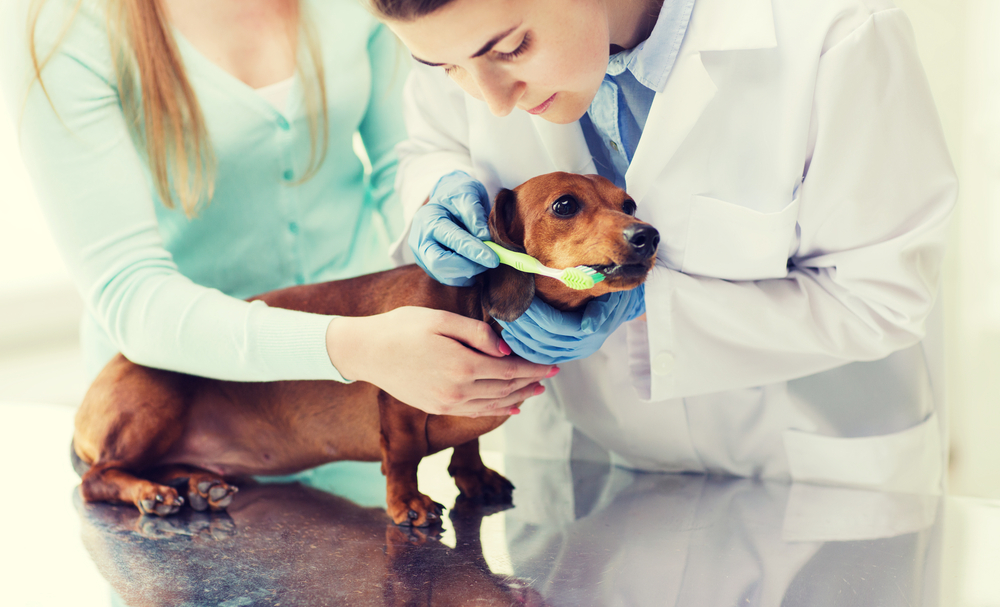How to Keep Your Dog’s Teeth Clean
How to Keep Your Dog’s Teeth Clean
Keeping your puppy’s gums and teeth clean and healthy is crucial for their overall health and well-being and one of the best ways to do this by having routine check-ups with your vet and a regular brushing routine. Yes, you read right, brushing your dog’s teeth regularly is the best preventive oral care you can provide. While you may not have considered yourself a canine oral hygienist, long term neglect can result in costly tooth extraction surgeries and a pooch that is in severe pain.
Dogs are so much more tolerant when it comes to teeth brushing in fact; most will enjoy the attention, especially when it’s made into a fun and interactive activity. Starting this oral hygiene routine when they are puppies will help your dog to get used to the idea of brushing. Having your hands and fingers in their mouth becomes more familiar for them and becomes part of a routine just like brushing their coats.
Are there any tips or tricks to brushing my dog’s teeth?
Brushing every day with a dog-safe toothpaste is the best way to clean your dog’s teeth and an excellent way to prevent plaque build-up. Toothpaste that is specifically designed for dogs is available at your vet and comes in different flavours. If your dog likes like treats, you can give them enticing bits, before, during and after brushing. Giving tummy rubs and positive reinforcements while brushing goes a long way to help make this activity a happy, fuss-free experience.
The key is consistency, if you decide to do it every night after dinner, make that your nightly routine. If you have a fearful dog, start slowly by using a rough cloth wrapped around your index finger, and you can gradually introduce a toothbrush until your dog is comfortable with regular brushing.

Are there other options for brushing?
If you are struggling to brush your dog’s teeth try Royal Canine Dental, it’s available in a dry kibble and is an excellent alternative to brushing, plus it is a balanced diet. Giving your dog Royal Canine dental will help slow down the build-up of plaque.
There are many different water additives on the market, making dental care as simple as dropping a bit of liquid into your dog’s water bowl. Water additives help to rinse out the oral cavity and reduce microbial activity to slow done plaque build-up. While some dogs dislike the taste or smell of the water, it is an easily integrated preventative solution to add to your dental hygiene routine.
There are also lots of dental chew toys on the market designed to encourage your dog to chew, which helps to reduce the plaque build-up on your dog’s teeth. If you are love struck by your dog’s pleading eyes for treats, it makes sense to choose a treat that will help clean your dog’s teeth at the same time.
Small dog breed dogs are often more susceptible to periodontal disease because they have smaller mouths with lots of teeth. Crowded oral cavities mean more spaces for bacteria to go undetected, which is why we recommend scaling and polishing every six months.

All dog breeds are prone to plaque build-up and can develop gum disease. The severity or progression of the infection will depend on several factors such as
- diet
- if the oral cavity is crowded with lots of teeth
- twisted teeth or oral occlusion
- underbite and overbite
Your dog’s overall health will benefit significantly from daily brushing and twice-yearly cleanings from your vet. Unchecked dental problems can escalate into chronic infections affecting the heart, liver, and kidney. Dogs can suffer in pain long before we notice any physical changes, so they need regular dental care for many of the same reasons we do. We love our dogs, so let’s show it by helping to keep their teeth squeaky clean.
For more information about pet dental care, contact us on (08) 8340 0388

